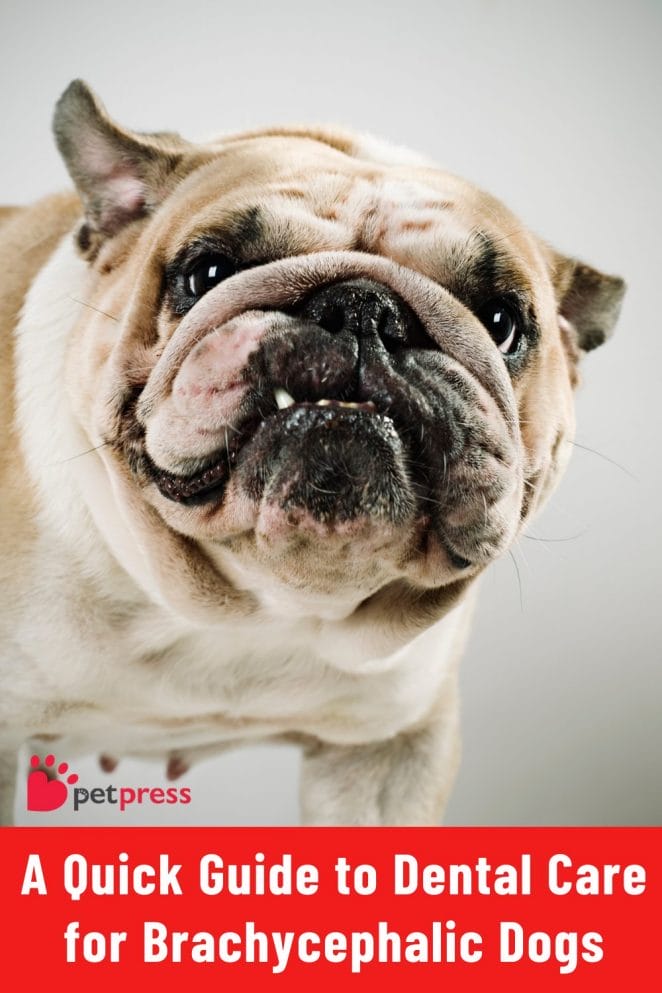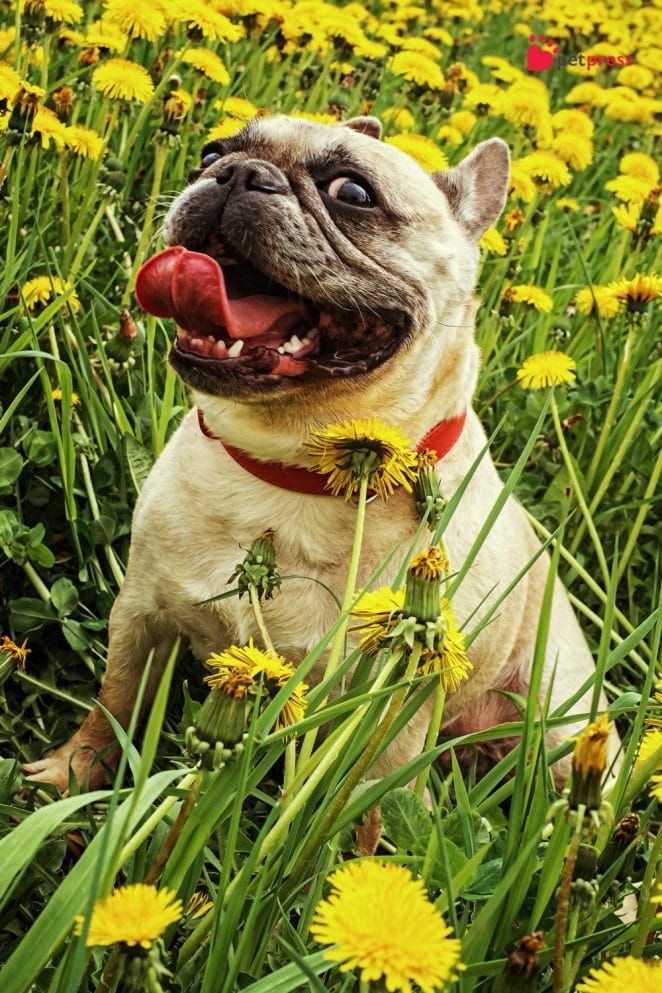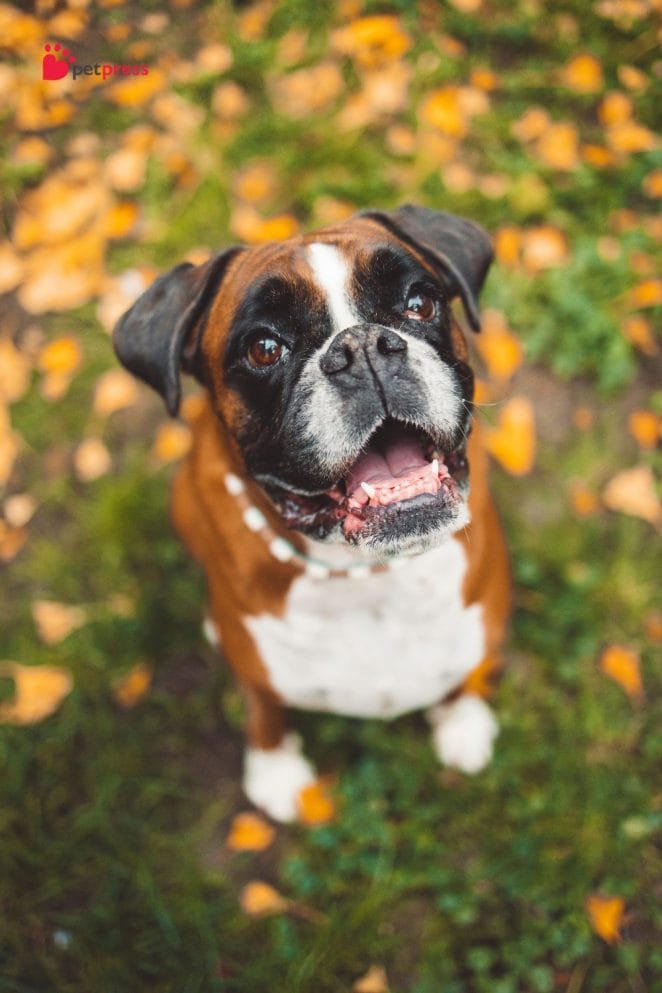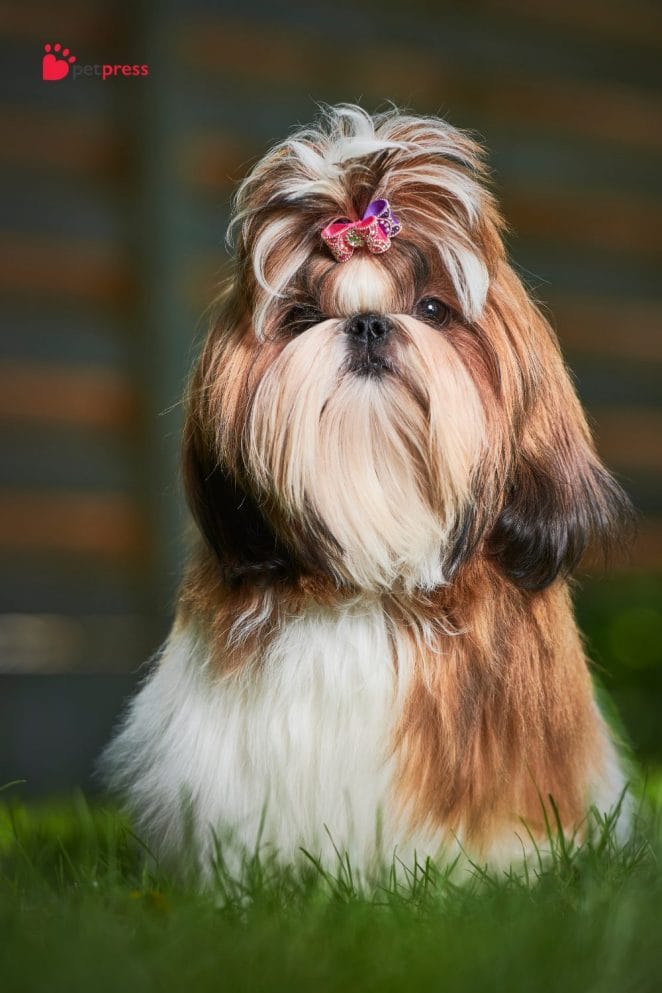
Taking care of your dog involves more than just walks and playtime. Dental care for brachycephalic dogs is essential. These pups, with their unique short snouts, need special attention. Keeping their teeth clean isn’t just about fresh breath; it’s key to their overall health.
What is a Brachycephalic Dog?
So, what exactly does brachycephalic mean? It refers to dogs with broad, short skulls. Simply put, brachycephalic dogs are the breeds with those cute, pushed-in faces. Think Bulldogs, Pugs, and Shih Tzus.
The adorable faces of the brachycephalic dog steal our hearts, but they also present unique health challenges. Ensuring they receive proper dental care is crucial for their well-being.
Common Brachycephalic Breeds
When we talk about brachycephalic dogs, a few popular breeds come to mind:
- Bulldogs, both English and French
- Pugs, with their signature smiles
- Boston Terriers, small but full of personality
- Boxers, the playful protectors
- Shih Tzus, with their flowing locks

The Importance of Dental Care for Brachycephalic Dogs
So, why is dental care for these snub-nosed pals so critical? Their unique jaw structure means teeth can become crowded. This leaves little space between teeth, trapping food and leading to plaque buildup and dental disease.
Dental Care Challenges in Brachycephalic Dogs
Brachycephalic breeds have a charm that’s hard to resist. Their squished faces and big eyes melt hearts. But, these same cute features make dental care a bit of a puzzle.
- Crowded Teeth: The main issue? Their short jaws don’t have room for all their teeth. This crowding can lead to problems.
- Misalignment: Teeth that don’t line up properly are hard to keep clean. It’s like trying to brush in a tiny, cluttered room.
- Breathing Issues: Their narrow airways make keeping their mouth open for brushing a challenge.
Understanding these anatomical differences is the first step in providing the best care for your brachy dog’s smile.

Dental Care Essentials for Brachycephalic Dogs
Ensuring your snub-nosed buddy stays healthy involves more than just cuddles and treats. Let’s dive into the dental care must-haves for brachycephalic dogs.
Regular Veterinary Check-ups
Professional dental evaluations are non-negotiable. They’re as crucial as their daily walks. During a check-up, your vet will inspect your dog’s mouth for any signs of dental issues like plaque buildup, gum disease, or misaligned teeth. They’ll probably give those pearly whites a thorough cleaning too. Think of it as a spa day for your dog’s mouth!
At-Home Dental Care Techniques
Brushing your dog’s teeth might sound tricky, but it’s an essential part of their care routine. Here’s a simple guide to get you started:
- Choose the right toothbrush and toothpaste, specifically designed for canines. Human products are a no-go for your furry friend.
- Start slowly to get them used to the sensation. It’s all about making it a positive experience.
- Gently brush in circular motions, focusing on one section at a time. Reward them afterward to associate brushing with good vibes!
For brachycephalic dogs, specific dental hygiene products can make this task easier. Look for angled toothbrushes or dental wipes designed to work around their unique mouth structure.
Diet and Dental Health
What your dog eats plays a big part in their dental health:
- Crunchy kibble helps reduce plaque. It’s like a natural toothbrush!
- Dental treats and special diets can support oral health, keeping those gums strong and teeth clean.
Every bite counts towards a healthier mouth.
Dental Toys and Chews
Toys and chews aren’t just for fun; they’re part of your dog’s dental care, too. When they munch on these, they’re also fighting plaque and tartar build-up. It’s a win-win! Look for:
- Durable rubber or nylon toys designed for chewing.
- Edible chews that are clean while satisfying their need to gnaw.
Remember, not all toys are created equal. Choose products that are safe and effective, avoiding anything too hard that could damage their teeth.

Common Dental Health Issues in Brachycephalic Dogs
Brachycephalic breeds often face unique dental challenges. Their compact jaws can lead to overcrowded teeth. This makes food and plaque buildup more likely, leading to several common dental health issues.
Keep a watchful eye on your dog’s dental health by looking out for these signs:
- Bad breath isn’t just unpleasant; it’s a warning sign of potential dental disease.
- Difficulty eating or a sudden loss of appetite can indicate dental pain or discomfort.
- Pawing at the mouth or face is a clear signal your dog might be experiencing dental discomfort.
- Red, swollen gums, or bleeding gums are signs of gingivitis or gum disease.
- Loose or missing teeth can result from advanced dental disease, impacting your dog’s ability to eat properly.
When to Seek Veterinary Attention
Not sure if it’s time to call the vet? Here are some guidelines:
- Persistent bad breath, despite regular brushing, should be checked out.
- If your dog shows reluctance to eat or chews on one side, it’s time for a professional evaluation.
- Visible plaque or tartar buildup on teeth means professional cleaning may be necessary.
- Any sign of pain—like whimpering while eating—warrants an immediate vet visit.
- Regular annual check-ups are vital. Don’t wait for visible symptoms to ensure your dog’s mouth is healthy.
Early detection and treatment can prevent more serious health issues. Taking care of your brachycephalic dog’s dental health is an act of love.
Conclusion: Why Dental Health is Crucial for Your Brachy-Snouted Buddy
Keeping your brachycephalic dog’s teeth clean is more than just a hygiene task; it’s a vital part of their healthcare routine. Their unique facial structure makes them extra susceptible to dental issues. Ignoring their dental health can lead to problems that affect more than just their mouth.
Proactive dental care practices are a game-changer. They not only keep your pup’s smile shiny but also ward off potential health issues down the road. It’s about giving your dog the best shot at a healthy, happy life.
Remember, every small step you take towards maintaining your dog’s dental health can make a big difference in their overall well-being. Start these practices today, and you’ll be thankful you did. Share this guide with your fellow dog lovers to spread the word. Together, let’s keep those cute brachycephalic smiles bright and healthy!

FAQs for Dental Care for Brachycephalic Dogs
Brachycephalic dogs have unique mouth structures that can lead to more dental issues. Regular dental care is crucial to prevent problems like plaque buildup and gum disease, keeping them happier and healthier.
Aim for daily brushing. Making it a part of your routine ensures their teeth stay clean and helps you bond with your pup. It’s a small effort for a big reward—your dog’s health and happiness.
Keep an eye out for signs like bad breath, difficulty eating, pawing at the mouth, or swollen gums. Any of these could indicate dental issues, and it’s time for a vet visit.
Start slow, with lots of praise and treats. Let them taste the toothpaste and gradually get used to the brush. Keep sessions short and positive. Patience is key—it’s a new experience for them!
Look for chews designed for dogs with shorter snouts. These are easier for them to grip and chew, promoting dental health without risking their airways. Always supervise your dog to ensure safe chewing.


GIPHY App Key not set. Please check settings